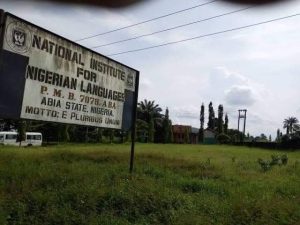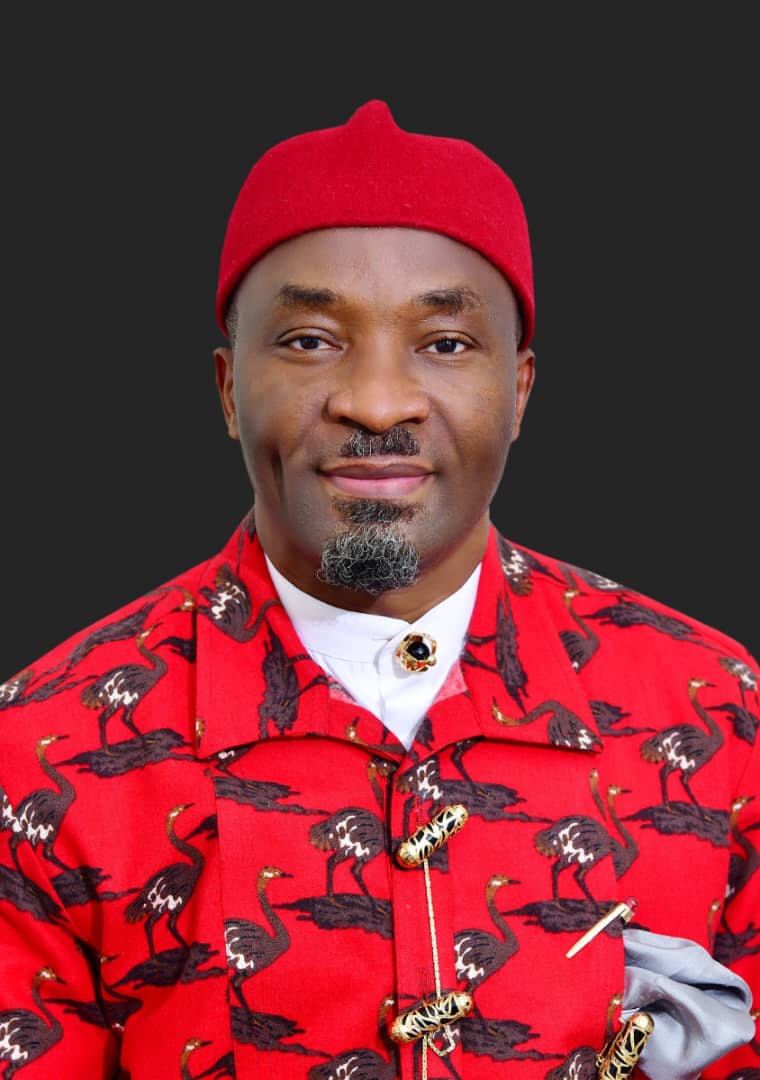By Levinus Nwabughiogu
His inaugural term from 2019 to 2023 was epochal such that the sheer magnitude of his accomplishments makes ‘remarkable’ an understatement.
In a stunning display of legislative prowess, he sponsored 44 bills, a feat so unparalleled by his peers and predecessors from his constituency. Although he had just debuted on the thresholds of the Nigerian parliament, his passion and tenacity of purpose stood very conspicuous, projecting him as one with legendary congressional experience.
Elatedly, two of those bills in the 9th National Assembly: Constitution of the Federal Republic of Nigeria, 1999 (5th Alteration) (No.15) Act, 2023 (Act No. 22) (Transfer of Prisons to the Concurrent Legislative List and renamed as Correctional Services) and Nigerian Meteorological Agancy (Establishment) Act, No. 29 of 2022 eventually garnered presidential approval to mark off the tenure. To many, it is a testament to the exceptional skill and influence he had mustered through his personality and intellectual dispositions.
The accomplishment stands out even more, given the stark contrast to his contemporaries, none of whom could boast of such unassailable feats, even as some of those who came before him still have their legislative records eerily blank till date.
Also, speaking for the institution as its official spokesman was yet another task where he displayed competence and oratory skills to the admiration of all. Yet, his legislative sagacity continues to shine brightly in his second term in the 10th Assembly.
Rt. Hon. Benjamin Okezie Kalu may have since been elected the Deputy Speaker of the House of Representatives, an office that concomitantly trails a lot more responsibilities and demands but he still finds time to execute the call of his primary assignment in the parliament.

Within the first legislative year which is between June 2023 and June 2024, Kalu has spearheaded an astonishing 105 bills, cementing his status as a master legislator. Truth be told, his ability to sponsor this number of bills demonstrated unwavering dedication, and a profound grasp of the complexities of lawmaking.
In his new office, he has showcased remarkable prowess in navigating the intricate landscape of the legislative process. His many bills and motions tackled a wide array of critical issues, from constitutional reforms to electoral integrity and good governance.
The sheer volume of bills credited to his name testifies to his tireless work ethic, strategic thinking, and capacity to build consensus among his colleagues. His influence on policy has been profound, shaping the country’s development trajectory and leaving an indelible mark on its governance.
No doubt, Kalu inspires fellow lawmakers and aspiring public servants, demonstrating the transformative potential of dedicated service. His legacy serves as a beacon, illuminating the path for future generations of leaders.
Notably, the Deputy Speaker’s contributions to the ongoing review of the 1999 constitution which committee he chairs underscores his commitment to strengthening the nation’s foundational document.
This representative’s remarkable journey sure invites us to reflect on the power of effective lawmaking and the enduring impact of visionary leadership, a savory story which is also a testament to the difference one individual can make in shaping the course of history.
But despite his impressive legislative record, he has continued to face criticisms and allegations of sycophancy. Detractors claim Kalu prioritizes political expediency over principled leadership, tailoring his bills to curry favor with the elites, the affluent and influential in high places.
However, a closer examination reveals a more nuanced reality. Kalu’s bills demonstrate a thoughtful, solution-driven approach, addressing pressing national issues and reflecting the concerns of his constituents. His collaborative spirit, often misconstrued as sycophancy, enables effective governance and progress.
This reminds one of what played out recently in the media upon the introduction of a university of Nigerian languages bill on the floor of the House of Representatives.
No sooner had the bill been read the first time than a flurry of corrosive, jaundiced media interpretations and attacks ensued in the most unimaginable way, leaving a poignant impression of a well-orchestrated campaign.
The vicious attacks and a maelstrom of criticism leave one wondering if that was the first time an establishment or conversion bill of a university was happening in the parliament.
I have read some rather very disappointing articles and hushed up notes authored by the people I held in high esteem and had thought were well vast in political journalism and research, only to realize that they showed so much predilection for narcissistic vainglory than the ethos of journalistic writings.
For me, it is only a neophyte in the field of journalism that would need the tutelage of his master to understand that bills read for the first time are still in their raw state, yet to pass through the crucibles of refinement. Only someone lavishly induced with freebies, blinded by the ecstasy of their own tainted viewpoints, could ignore the conscience-searing weight of their own compromises and celebrate misguided attacks against another in most uncharitable manner.
From what I know, ethical journalism prioritizes objectivity through sustained enquiries and research but in their quest to promote and accentuate illusory and hallucinatory feelings, they chose to ignore.
For the sake of clarity, the bill in question for which they sought Kalu’s crucifixion without recourse to research and other of his many altruistic legislative interventions is not seeking to prefix a university with President Bola Ahmed Tinubu’s name.
The bill before the House sponsored by Deputy Speaker and 7 others is “University of Nigerian Languages, Aba (Establishment, etc) bill, 2024”. It was listed alongside the “Tertiary Education Trust Fund Act (Amendment) Bill, 2024”.
This is in compliance with the provisions of Order XII Rule 2(2) of the Standing Orders of the House of Representatives.
Essentially, this bill seeks to alter the status of the existing National Institute for Nigerian Languages (NINLAN), Aba and provide for a university of Nigerian languages, Aba, Abia State.
It is only seeking an upgrade to be occasioned by a consequential amendment of the act establishing NINLAN.
The bill when passed into law will strive to sustain our languages from going into extinction and I must re-emphasize that NINLAN is an already existing institution.
This is also the emphasis made by the Deputy Speaker himself when he played host to the Governing Board of NINLAN in Abuja early in the week.
He said: “To review the establishment act of the NINLAN to change your status from not being funded by TETFUND to a level where you can be funded, enlarge your curriculum and give out more to the society is what the bill is all about. The Bill has nothing to do with President Bola Ahmed Tinubu’s name. What was published in our journal says university of Nigerian languages. This was what we submitted but the news we are getting outside is that they are attaching the name of Bola Ahmed Tinubu just to drag a president who is making concerted efforts to ensure that education in Nigeria is stronger than he met it. Election is over, people should leave the President out of petty issues. He doesn’t know about this, was never part of it. This is not the first institution I am moving bills for their status to change and it’s not going to be the last.
“My interest is that we should not allow NINLAN to die. The issue of the school’s nomenclature is secondary, it’s a federal government establishment already. It has the potential to create more jobs, do more for our people. It’s not a new university. We want to upgrade you to where you can benefit from TETFUND and build capacity and train more people and be a reference point.
“As leaders who want to protect what our forefathers handed over to us, we must push for the element of our identity found in our Nigerian languages. There’s no institution in Nigeria that was set up to handle Nigerian languages. Rather outside this, what we have is an institution promoting a foreign language even when French as a language is sparsely used in our day-to-day life whereas Nigerian languages are put to use in our every day activities from the farm to the markets, schools to construction sites, community to worship centres. An average Nigerian child cannot go the market to negotiate in our local languages or worship using our local languages. So, it’s important we get it right now to avoid them going into extinction. Language has remained a uniting element in all the nations of the world. It is fundamental.
“It’s one of the elements that defines our identity. Once it’s eroded, people begin to question your identity. You cannot talk about peace and unity and progress without our languages. If we are embracing the diversity that defines our nation, then language must be put on the priority list. What’s wrong if I’m Igbo and I go to school and learn how to speak Hausa? What’s wrong if I’m Hausa and I go to school and learn how to speak Yoruba?
Now, here comes the question. What is sycophantic about a simple bill seeking to upgrade of an existing federal institution?
Anyone who argues that Kalu’s proximity to the corridors of power in Aso Rock compromises his objectivity and constructive opposition to the Executive must yet to come to the realization that his legislative achievements underscore a commitment to the greater good, rather than mere political posturing.
His dedication to public service, coupled with his ability to navigate complex political landscapes, should not be discounted as sycophancy. Rather, it highlights his capacity for strategic leadership and coalition-building.
Ultimately, Kalu’s legacy will be defined by the substance of his work, not by unfounded allegations of sycophancy deliberately concocted by some media merchants to impugn the Deputy Speaker’s passion for public service.
It is not only mischievous to call a man who sponsored the recently assented landmark South East Development Commission (SEDC) bill a sycophant but also self delusional to say that the man who is currently sponsoring gender bills to create some special seats for women at the National Assembly; another bill to tinker with the National Eye Centre Act, Cap. N38, Laws of the Federation of Nigeria, 2004 to provide for the establishment of more specialist eye centres in various locations across the federation for the prevention and cure of various eye defects and diseases amongst others is a sycophant.
These self acclaimed pontiffs who have demonstrated a greater affinity for narcissistic self-aggrandizement than the principles of ethical journalism, distorting the narrative, misleading readers and damaging the community of unsuspecting people must know that Kalu’s bills’ impact on the nation’s development and the lives of its citizens serves as a powerful rejoinder to their criticisms, while underscoring the value of effective, principled leadership. They must be told that his remarkable legislative journey so far speaks about his dedication to public service, strategic leadership, and a steadfast commitment to the greater good.
These critics must be reminded that despite their diatribes and allegations, the Deputy Speaker’s impressive record of over 149 bills – 44 in his first term and 105, and still counting in the current second term speaks for itself.
Through his tireless efforts, he is leaving an indelible mark on the nation’s development trajectory, shaping policy and inspiring future generations of leaders. His ability to navigate complex political landscapes, build consensus, and pass meaningful legislations has earned him a distinguished place among his peers and in the annals of history.
Yes, labeling him a sycophant overlooks his impressive legislative achievements, thoughtful approach, and commitment to national service. It’s essential to consider the context and substance of his work rather than making unfounded assumptions.
This unfounded assumption succinctly finds expression in the words of Dale Carnegie, an American writer and lecture when he said “when you are displeased, it is much easier to criticize and condemn than it is to try to understand the other person’s viewpoint; it is frequently easier to find fault than to find praise; it is more natural to talk about what you want than to talk about what the other person wants; and so on”.
Kalu’s legacy stands as a shining example of what can be accomplished when conviction, collaboration, and a passion for progress converge.
Nwabughiogu is the Chief Press Secretary (CPS) to the Deputy Speaker, House of Representatives, Rt. Hon. Benjamin Okezie Kalu



